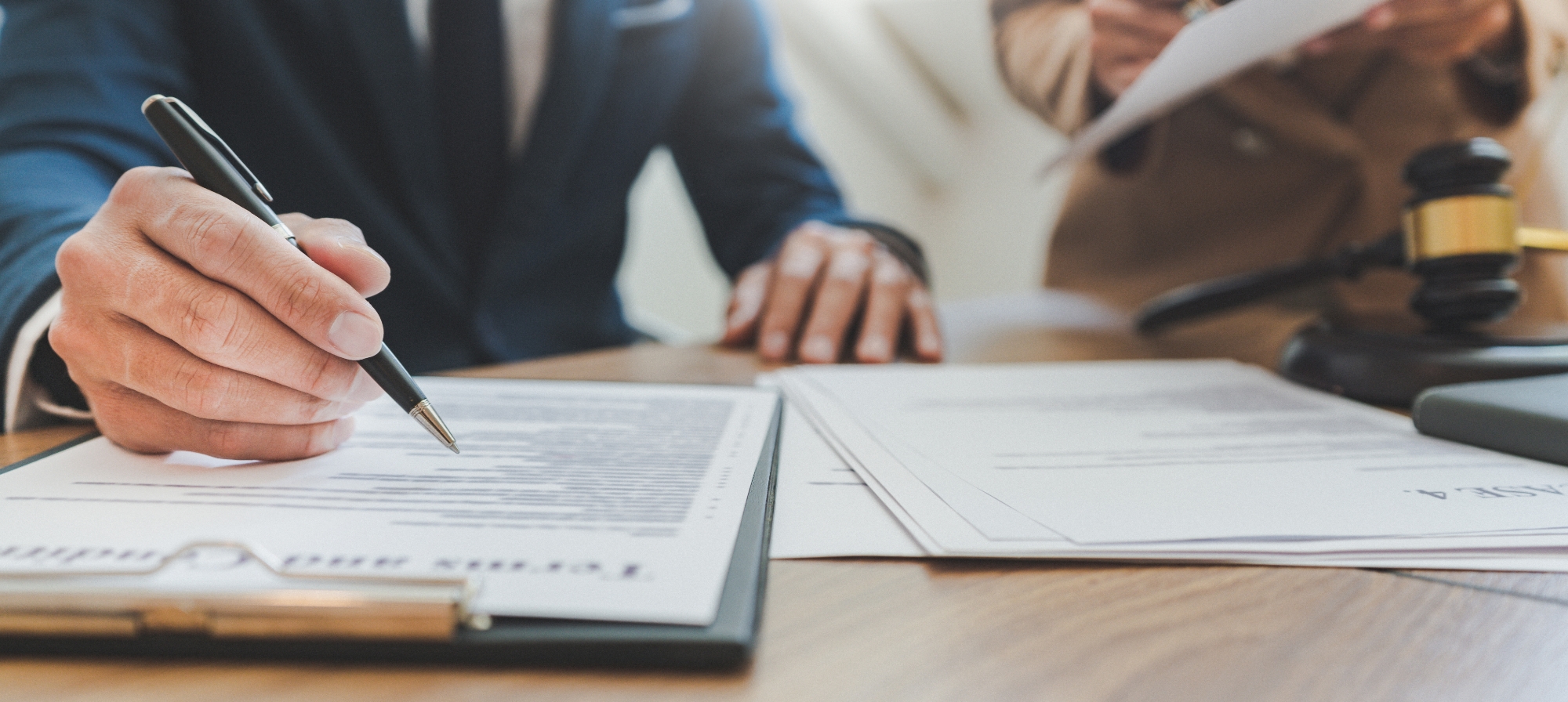Statistically, more personal injury cases settle than go to trial. However, negotiating a settlement is more complicated than making a couple phone calls. At Crosley Law, we carefully investigate our clients’ cases, calculate their damages, and build compelling arguments for their fair compensation. Many times, mediation is part of the settlement process.
While you may have heard of mediation or alternative dispute resolution (ADR), you may not know a lot about the process and what to expect. In this article, our experienced injury lawyers answer some frequently asked questions about mediation and ADR.
Does Mediation Mean Settlement?
Your attorney or the court may suggest mediation when settlement negotiations have stalled. (Sometimes, a judge will even order you to participate in alternative dispute resolution.) A mediator’s goal is to settle your case for a fair amount. However, while mediation can often result in a settlement, it’s not guaranteed.
At mediation, a specially trained professional called a mediator will guide you and the insurance company through your settlement negotiations. The mediator’s job is to find common ground and serve as a neutral “voice of reason.” A good mediator can help accident victims and insurance companies restart negotiations and arrive at a reasonable settlement. Sometimes, mediation succeeds. Other times, the gap between your demand and the insurance company’s offer is too large to overcome.
What Happens if I Agree to a Settlement During Mediation?
If you agree to a settlement during mediation, your personal injury lawyer and the insurance company will draft a series of documents. Once you sign these documents, the insurance company typically will issue you a check and send it to your lawyer’s office. After deducting your attorney’s fees and costs and then paying any liens, your lawyer will give you the remaining settlement money.
What Happens if Mediation Fails?
If mediation is unsuccessful, your injury lawyer will continue to prepare your case for trial. The court will schedule a trial date for your case, a jury will be selected, and both sides will present their side of the case. However, throughout this process, settlement negotiations may continue. It’s not uncommon for cases to settle “on the courthouse steps,” which means immediately before or even during a trial.
Why Should I Mediate My Case?
When you take a case to trial, there is always risk involved. First, your lawyer will have to spend a lot of time and money preparing your case for the jury and consulting with experts. Second, juries can surprise even the most experienced lawyer. The best-planned trial presentations and the most persuasive oral arguments can’t always convince juries that victims deserve fair compensation. (An experienced lawyer can do a lot to prevent this from happening, but nothing is ever guaranteed.)
Even if you win your case at trial, that might not be the end of litigation. The insurance company could appeal your case and continue the fight, dragging it out for years.
Compared to a jury trial, mediation is fast and relatively inexpensive. If you resolve your case through alternative dispute resolution, you don’t have to worry about appeals and continued litigation. Instead, you’ll typically receive your check within a few months. And while you’ll have to pay the mediator for their time, it’s usually a lot less than the cost of building a full jury presentation.
Compared to a jury trial, mediation is fast and relatively inexpensive. If you resolve your case through alternative dispute resolution, you don’t have to worry about appeals and continued litigation. Instead, you’ll typically receive your check within a few months. And while you’ll have to pay the mediator for their time, it’s usually a lot less than the cost of building a full jury presentation.
Who Will Be at My Mediation?
If your case is scheduled for mediation, you should always attend the session. (If you’re unable to participate or need to cut mediation short due to your injuries or an illness, make sure you notify your attorney as soon as possible.) In addition to you and your personal injury lawyer, several other people will participate in the mediation process, including the mediator, insurance adjuster, and defense attorney.
You can also have trusted loved ones with you during mediation. For example, you may want your spouse, a parent, or someone else in your support network sitting by your side.
How Does Mediation Work?
Mediation is often a complex process, and there are several fundamental things you need to understand from the very beginning:
- Mediation is voluntary: While a judge may order mediation, they can’t control the outcome. You have the power to make decisions about your claim’s value and whether or not to accept a settlement offer. If mediation is not court-ordered, you can decline the opportunity.
- Mediation is confidential: In Texas, anything you say during mediation is privileged. So, opposing counsel cannot use your statements against you in court. However, they can use the information they gather during mediation to inform their litigation strategies.
Before you start mediation, your lawyer and the insurance company’s attorney will need to select a mediator. This individual should have extensive training in dispute resolution and is often a highly experienced attorney or a former judge. You’ll also want a mediator who has a history of successfully resolving cases with professionalism and tenacity.
On the day of your mediation, you’ll meet in a larger conference room with your lawyer, the mediator, the insurance adjuster, and the insurance company’s lawyer. Your lawyer will deliver a presentation summarizing your arguments, and the mediator will facilitate a discussion about your case.
Then, you’ll break off into separate rooms, with you and your lawyer in one and the insurance company representatives in the other. The mediator will privately discuss your case with each side. During this time, you’ll examine the strengths and weaknesses of your personal injury case, discuss settlement value, and establish your willingness to compromise. Then, you’ll negotiate back and forth, making settlement demands and offers.
Throughout process, the mediator will highlight issues that may impact your claim’s value, provide their honest opinions about your case’s strength, and suggest ways to find common ground. As they go back and forth between your conference room and the insurance company’s, the mediator will try to increase the defense attorney’s settlement offer while lowering your demands until both sides arrive at a number everyone can live with.
Typically, mediation lasts for a few hours to a full day. However, complicated claims can take days to mediate. You’ll be able to take breaks as needed during mediation.
How Much Will I Get in a Mediated Personal Injury Settlement?
Every personal injury claim is unique, so there’s no simple answer to this question. Your personal injury attorney will consider many factors when they calculate your claim’s settlement value, including:
- The amount of insurance coverage that applies to your injury claim
- Your medical bills and future treatment needs
- How much income and wage-earning capacity you’ve lost
- The extent of your pain and suffering
- How your injuries have impacted your life and relationships
- Your age and life expectancy
- The availability of punitive damages
- Any legal or factual issues that complicate your claims
Your lawyer should help you understand all the issues that impact your claim’s potential value and then guide you through your decisions about settlement.
Sometimes, a settlement is in your best interest, but that’s not always the case. At Crosley Law, we’re not afraid to take cases to trial, and we’ve built a reputation for our track record of success.
Do I Really Need a Lawyer During Mediation?
Mediation isn’t just a casual conversation; it’s a formal dispute resolution process. You should never attend a personal injury mediation session without an experienced attorney at your side. While a mediator will help you understand the basics of your claim, they cannot provide legal advice. So, if you’re unrepresented, you’ll have to make your own opening statement, deal with the defense lawyer, and navigate the negotiation process on your own. It’s a lot to handle, and you may make mistakes that negatively impact the outcome of the case.
What Should I Wear During My Personal Injury Mediation?
This may sound like a silly question, but it’s not! (It’s also one of the most common questions our clients ask.) Typically, we don’t tell our personal injury clients to wear a suit to mediation. If you wear something neat, clean, and comfortable, you should be fine. For example, you may want to wear a polo shirt or blouse and a pair of freshly washed jeans. Or, if you’re more of a button-up-shirt-and-trousers kind of person, that’s okay too. (Your lawyer will probably be in a suit, but you don’t need to overdress.)
Crosley Law: Proven Results and a Commitment to San Antonio
At Crosley Law, we have earned a reputation for our results, both through mediation and at trial. Our attorneys aggressively prepare cases, investigate injury claims, calculate damages, and guide victims through difficult times. We’ve recovered hundreds of millions for crash and accident victims, helping them recover and rebuild after the unthinkable.
To schedule your free case evaluation with one of our lawyers, use our online form or call us at 210-LAW-3000 | 210-529-3000.
The content provided here is for informational purposes only and should not be construed as legal advice on any subject.









